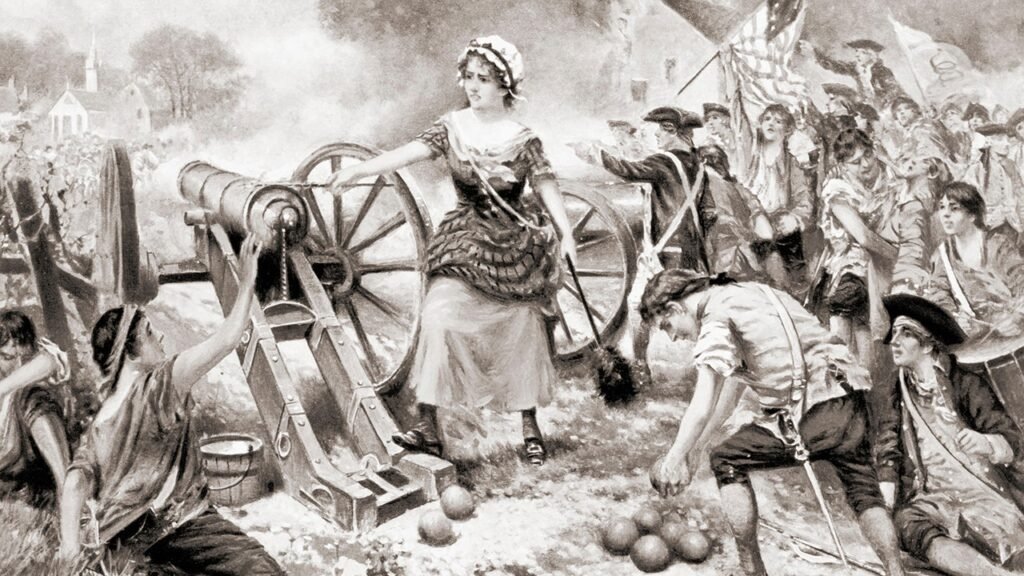Mary Ludwig Hays, also known as “Molly Pitcher,” became a legendary figure in American history for her actions during the American Revolution. Born on October 13, 1754, in either Philadelphia, Pennsylvania, or New Jersey, Mary married artilleryman William Hays and accompanied him to the Continental Army camp when he enlisted. During the Battle of Monmouth on June 28, 1778, Mary reportedly brought water to soldiers on the battlefield, earning her a reputation for courage and hard work under fire.
As the battle raged on, Mary continued to care for wounded soldiers and bring water to those in need until her own husband was wounded. It is said that Mary then took her husband’s place in the gun crew for the rest of the battle. General George Washington, who was present at the conflict, is said to have promoted her to sergeant the day after the battle in recognition of her service. A Molly Pitcher U.S. postage stamp was issued on October 20, 1928, as a tribute to her bravery and dedication to the American cause.
After the war, Mary and William Hays returned to Pennsylvania and settled in Carlisle, where she worked as a domestic worker and charwoman in the State House. Her husband passed away in 1786, and Mary remarried John McCauley in 1793. Eventually, Mary was awarded a pension by the Pennsylvania State Legislature in 1822 in recognition of her service during the war. She passed away on January 22, 1832, and was buried in Carlisle, Pennsylvania, where a statue memorializing her likeness stands.
Despite some skepticism about the accuracy of the story of Molly Pitcher, her legacy continues to live on as a tribute to the many Revolutionary women who played crucial roles in the formation of the new nation. In 1876, a marker was placed on Mary’s grave to commemorate her exemplary service during the American Revolution. The Smithsonian Institution issued a Molly Pitcher U.S. postage stamp on October 20, 1928, further solidifying her place in American history as a symbol of courage and strength in the face of adversity.
Mary Ludwig Hays, also known as Molly Pitcher, is remembered for her selfless actions at the Battle of Monmouth during the American Revolution. Born in 1754, Mary accompanied her husband William Hays to the Continental Army camp and provided essential support to soldiers by bringing water and caring for the wounded on the battlefield. Despite facing danger and hardship, Mary continued her efforts until her husband was injured, at which point she reportedly took his place in the gun crew, earning recognition from General George Washington.
Following the war, Mary and William returned to Pennsylvania, where she worked as a domestic worker and charwoman. After William’s death in 1786, Mary remarried John McCauley, who had also served in the war. Mary was awarded a pension by the Pennsylvania State Legislature in 1822 for her contributions during the conflict. She passed away in 1832 and was buried in Carlisle, Pennsylvania, where a statue in her likeness stands as a testament to her courage and dedication. Despite some doubts about the accuracy of her story, Mary Ludwig Hays, or Molly Pitcher, continues to be celebrated as a symbol of the many women who played vital roles in the founding of the United States.











